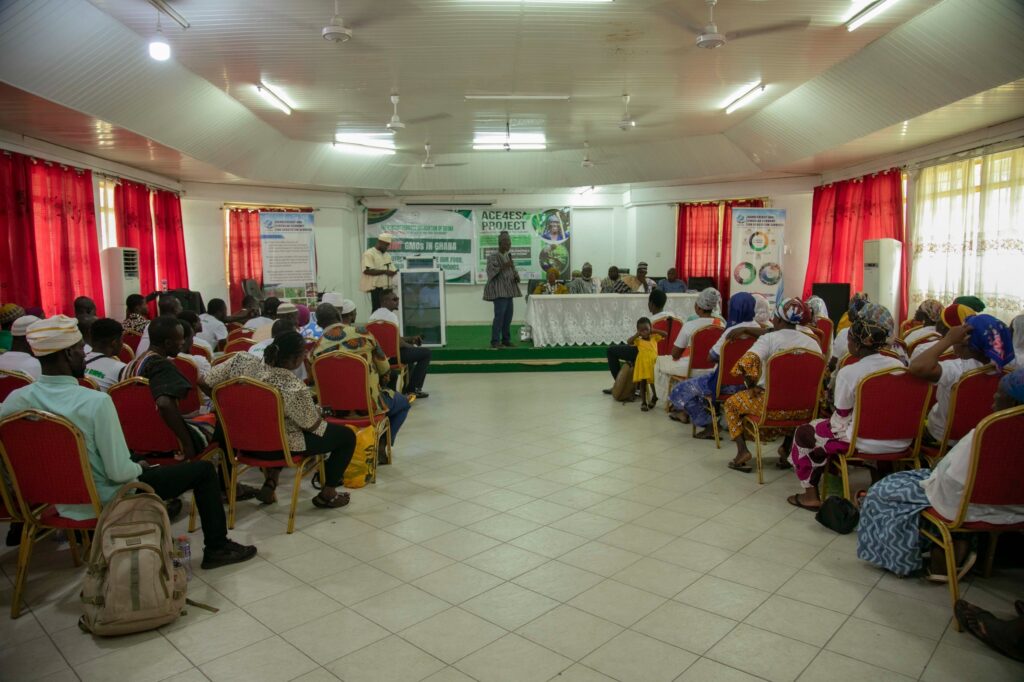The Peasant Farmers Association of Ghana (PFAG) engaged its members, civil society and other allied groups in the Upper West Region to create awareness on the existence and dangers of Genetically Modified Organisms (GMOs) which have been commercialized in Ghana. The event was organized at the regional library in the Wa municipalility in the Upper West region.
In his welcome address, the Upper West regional focal person of the Association, Mr. Salifu Amadu, appreciated the farmers’ participation reiterating the remarkable role of farmers in promoting food security in the country. He encouraged members of the association to embrace sustainable ways of farming by shifting from the conventional farming to ensure the production of safe food for consumption.
The acting Executive Director of PFAG, Mr. Bismark Owusu Nortey admonished farmers on the importance of working in groups at the grass root level and presenting a formidable voice for recognition by stakeholders. He highlighted the effects of climate change on agricultural activities which are hampering the production of food in the country and across the world. Other activities such as illegal mining popularly referred to as “galamsey”, according to him, is an extreme threat to our food security as it destroys lands and water bodies.
He stressed on the need for farmers to use quality seeds for production and educated members on the types of seeds available for use. The participants were educated on the dangers GMOs pose to human health and food production in general. He stated that even though the PFAG and other CSOs opposed the introduction and commercialization of GMOs in the country, the government of Ghana went ahead to commercialize it. The farmers and consumers at large were entreated to be vigilant when purchasing seeds or food products, as currently a GMO cowpea variety has been commercialized in the country.
Farmers were further informed on the dangers of using GMO seeds as it seeks to cause overdependence on foreign farm inputs such as seeds and inorganic fertilizers and agrochemicals, thereby making us lose our food sovereignty. Also, the dependence on GMOs contribute to high cost of production as seeds cannot be re-planted, requiring consistent purchases. Farmers called on the government to critically address challenges faced in the agriculture sector such as access to irrigation and storage facilities rather than promoting GMO seeds which does not seem to address any pertinent challenges.
Other PFAG allies including the Centre for Indigenous Knowledge and Organizational Development (CIKOD) and Actionaid, added their voices indicating the need for farmers to adopt sustainable means of producing food, including agroecology, which promotes the use of indigenous seeds, organic fertilizers and pesticides to produce safe food for healthy living. Farmers were encouraged to seek knowledge on best agricultural management practices to improve food production and livelihoods.
The participants had the opportunity to share their concerns on the adoption of agroecology and the total rejection of GMOs. Members pledged their support to educate and seek more knowledge on best agricultural practices to ensure sustainable food production. The PFAG further distributed educational materials on GMOs to farmers and the other stakeholders.


